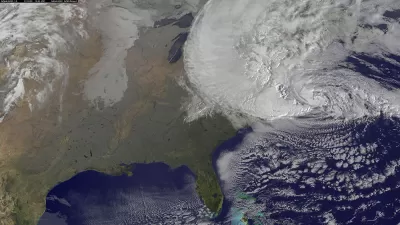Resilience, encompassing infrastructure, governance, economic strength, and social cohesion, is critical for cities to mitigate rising climate risks like flooding, wildfires, and heat, ensuring long-term recovery and adaptability.

As climate risks like hurricanes, wildfires, and sea-level rise become more frequent and severe, resilience — the ability of a community to recover and adapt — is emerging as a critical factor in determining where people choose to live. A house on high ground may avoid flooding, but without resilient infrastructure and governance, surrounding roads, utilities, and property values may still deteriorate. AlphaGeo, a climate modeling firm, highlights resilience through 28 factors such as infrastructure investment and social cohesion, creating a comprehensive view of how cities can withstand and rebound from climate-related adversity.
Cities like Norfolk, Virginia, and Placer County, California, exemplify resilience in action. Norfolk, plagued by rising seas and storm surges, has integrated sea-level rise into its urban planning, investing in flood walls, pump stations, and community-focused measures like home elevation. Meanwhile, wildfire-prone Placer County has implemented aggressive forest management and Firewise programs, demonstrating how proactive strategies can protect communities even in high-risk areas. Both regions showcase the importance of local leadership and innovative planning in tackling climate challenges.
Resilience is not solely about physical defenses; it also relies on economic strength, good governance, and social cohesion. Cities like Virginia Beach have made hard decisions, such as restricting development in vulnerable areas and raising taxes for climate mitigation. Additionally, strong community ties can significantly influence outcomes during crises, as seen in past disasters where neighborhoods with active social networks fared better. These examples underline the importance of both hard infrastructure and community-driven efforts in building climate resilience.
Ultimately, while no location is entirely safe from climate risks, a blend of robust infrastructure, smart public investments, and cohesive communities can mitigate impacts and sustain long-term prosperity. AlphaGeo’s data-driven insights provide a roadmap for homeowners and policymakers alike to navigate a volatile climate future, offering a clearer picture of how to align risk and resilience in choosing where to live and how to prepare for what is ahead.
FULL STORY: See if your city is poised to bounce back from the next climate disaster

Study: Maui’s Plan to Convert Vacation Rentals to Long-Term Housing Could Cause Nearly $1 Billion Economic Loss
The plan would reduce visitor accommodation by 25,% resulting in 1,900 jobs lost.

North Texas Transit Leaders Tout Benefits of TOD for Growing Region
At a summit focused on transit-oriented development, policymakers discussed how North Texas’ expanded light rail system can serve as a tool for economic growth.

Using Old Oil and Gas Wells for Green Energy Storage
Penn State researchers have found that repurposing abandoned oil and gas wells for geothermal-assisted compressed-air energy storage can boost efficiency, reduce environmental risks, and support clean energy and job transitions.

Santa Barbara Could Build Housing on County Land
County supervisors moved forward a proposal to build workforce housing on two county-owned parcels.

San Mateo Formally Opposes Freeway Project
The city council will send a letter to Caltrans urging the agency to reconsider a plan to expand the 101 through the city of San Mateo.

A Bronx Community Fights to Have its Voice Heard
After organizing and giving input for decades, the community around the Kingsbridge Armory might actually see it redeveloped — and they want to continue to have a say in how it goes.
Urban Design for Planners 1: Software Tools
This six-course series explores essential urban design concepts using open source software and equips planners with the tools they need to participate fully in the urban design process.
Planning for Universal Design
Learn the tools for implementing Universal Design in planning regulations.
Ascent Environmental
Borough of Carlisle
Institute for Housing and Urban Development Studies (IHS)
City of Grandview
Harvard GSD Executive Education
Toledo-Lucas County Plan Commissions
Salt Lake City
NYU Wagner Graduate School of Public Service





























